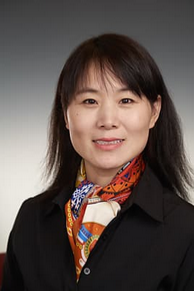ChatGPT in the Classroom Presents Both Challenges and Opportunities
The growing accessibility of artificial intelligence tools like ChatGPT is creating a lot of uncertainty in classrooms. Artificial intelligence tools allow students to generate text through simple prompts. Some teachers are concerned it could open the door to plagiarism or cheating. But others believe it also offers opportunities. Syracuse University School of Education professor Jing Lei says educators should look for ways to incorporate these new tools into their existing lesson plans.

“ChatGPT is not the first nor the last technology innovation that brings challenges as well as opportunities to education. It wouldn’t be a good idea to try to compete against technology, but rather to figure out how to work together with technology,” Professor Lei says. “For educators, the first step is to understand what ChatGPT can or cannot do (and it’s evolving), and then to consider how the use of a technology like ChatGPT might help to achieve learning objectives and educational goals.”
ChatGPT is not the first nor the last technology innovation that brings challenges as well as opportunities to education.
Prof. Lei says the key is to help students learn from and learn with the technonolgy. “For example, reviewing and critiquing works produced by ChatGPT can help students develop critical thinking skills, or students can practice creative thinking in giving original instructions to ChatGPT. Such technology forces us to be more creative with our teaching, in what to teach, how to teach, and how to assess student learning.”
Prof. Lei also offers some suggestions for educators who are concerned that students might use ChatGPT to cheat. “First, to focus on the learning objective instead of the format of assessment. For example, what’s the learning objective for students to write an essay? Are there other practices that can achieve the same objective? Second, find resources and support to detect AI work. Now there are websites and apps that can detect if a work is produced by AI, or specifically ChatGPT, and there will be more resources available.”
To request interviews or get more information:
Chris Munoz
Media Relations Specialist
315.278.5566
cjmunoz@syr.edu


